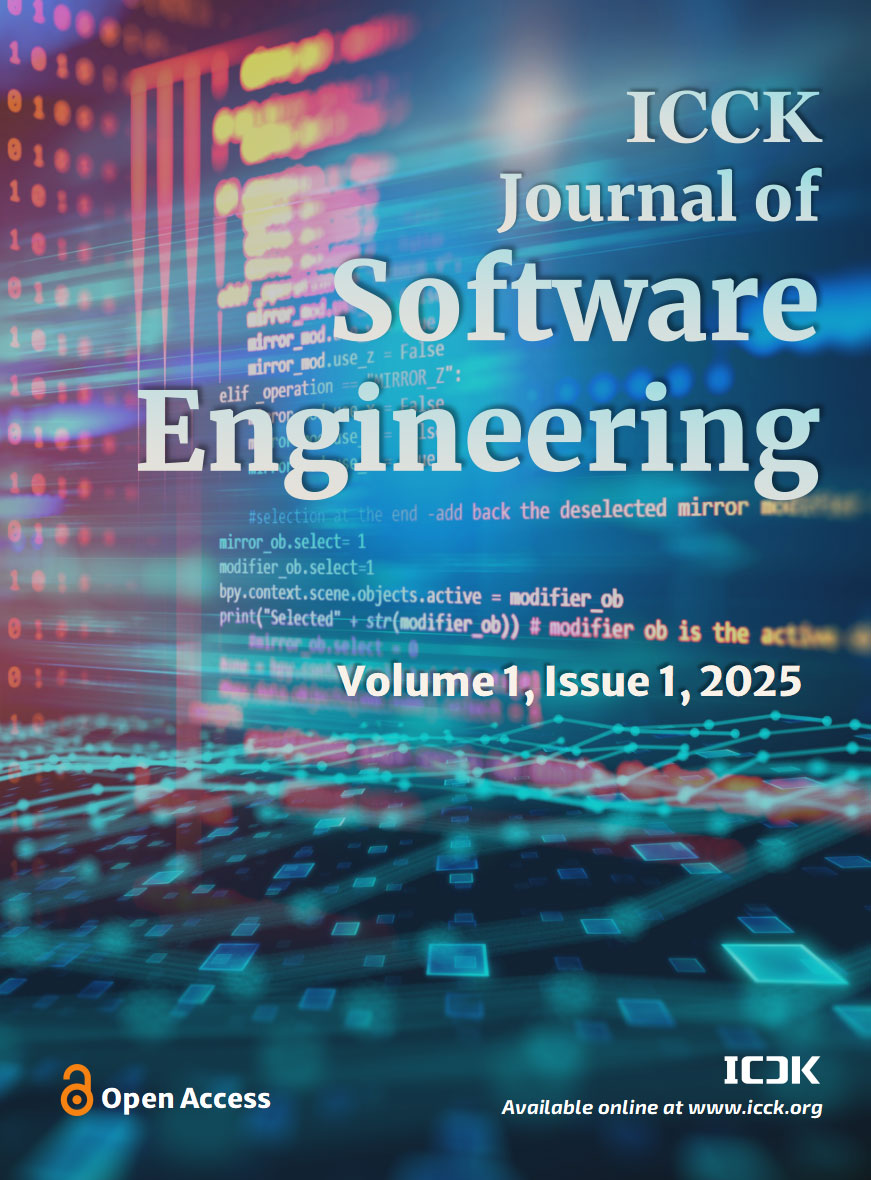Abstract
This editorial introduces the ICCK Journal of Software Engineering (JSE) as an academic platform dedicated to advancing research and innovation across the full spectrum of software engineering. The journal aims to create an inclusive and high-quality space for contributions that span from core theoretical foundations to the latest practical advancements, with a strong focus on emerging technologies. Software engineering as a discipline continues to face a wide range of unresolved challenges despite its critical role in shaping the digital world. Limitations in scalability, adaptability, integration of intelligent systems, and the gap between academic research and real-world application still persist. This editorial is dedicated to highlighting these shortcomings, not only to reflect on them but to advocate for renewed focus and innovative strategies that can move the field forward. Key focus areas include AI-assisted development, continuous integration and deployment, secure and ethical software lifecycles, intelligent code generation using large language models, and the adoption of sustainable, human-centered engineering practices. JSE is committed to fostering reproducible, ethical, and impactful research. In outlining the motivation behind the journal, this editorial highlights the urgent challenges facing the field and identifies key thematic domains to be emphasized. We extend a warm invitation to authors, reviewers, and collaborators across academia and industry to engage with this vision. By fostering a rigorous yet collaborative publication environment, the journal aspires to become a vital resource for the broader research and professional community.
Keywords
software engineering
AI-assisted development
secure software lifecycle
ethical software development
intelligent systems
Data Availability Statement
Not applicable.
Funding
This work was supported without any funding.
Conflicts of Interest
The author declares no conflicts of interest.
Ethical Approval and Consent to Participate
Not applicable.
Cite This Article
APA Style
Aftab, S. (2025). Software Engineering in the Era of Intelligence, Security, and Automation. ICCK Journal of Software Engineering, 1(1), 1–8. https://doi.org/10.62762/JSE.2025.534855
Publisher's Note
ICCK stays neutral with regard to jurisdictional claims in published maps and institutional affiliations.
Rights and Permissions

Copyright © 2025 by the Author(s). Published by Institute of Central Computation and Knowledge. This article is an open access article distributed under the terms and conditions of the Creative Commons Attribution (CC BY) license (
https://creativecommons.org/licenses/by/4.0/), which permits use, sharing, adaptation, distribution and reproduction in any medium or format, as long as you give appropriate credit to the original author(s) and the source, provide a link to the Creative Commons licence, and indicate if changes were made.


 Submit Manuscript
Edit a Special Issue
Submit Manuscript
Edit a Special Issue
 Copyright © 2025 by the Author(s). Published by Institute of Central Computation and Knowledge. This article is an open access article distributed under the terms and conditions of the Creative Commons Attribution (CC BY) license (https://creativecommons.org/licenses/by/4.0/), which permits use, sharing, adaptation, distribution and reproduction in any medium or format, as long as you give appropriate credit to the original author(s) and the source, provide a link to the Creative Commons licence, and indicate if changes were made.
Copyright © 2025 by the Author(s). Published by Institute of Central Computation and Knowledge. This article is an open access article distributed under the terms and conditions of the Creative Commons Attribution (CC BY) license (https://creativecommons.org/licenses/by/4.0/), which permits use, sharing, adaptation, distribution and reproduction in any medium or format, as long as you give appropriate credit to the original author(s) and the source, provide a link to the Creative Commons licence, and indicate if changes were made. 